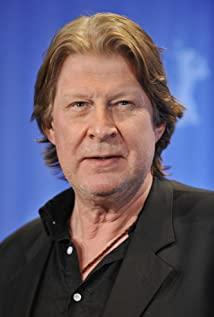The male protagonist Ove in the play has a weird temper and is a bit obsessive-compulsive. He likes to worry about the big and small things in the community. Anything that doesn't follow the rules can irritate him. But as he flashed back Ove's past, he slowly discovered that there were some painful stories behind his almost paranoid lifestyle as the reason - his parents, children, and wife were all in his feeling that life had just gotten better, and he was very close. When I was happy, I died because of various accidents.
Ove's wife was an ebullient, always smiling woman, with short dark brown hair, bright eyes, a love of reading, always painted red lips, and red high heels. She is like a ray of sunshine, illuminating the life of Ove, who feels bleak because of the loss of his parents. Even though she lost her baby in a traffic accident and her legs could no longer support her to stand up, she didn't let herself lose her sunny signature smile, but got back on her feet and devoted herself to studying and Education, eventually becoming a teacher in a wheelchair.
"Loving someone is like moving into a new house. At first you will fall in love with everything new and revel in every morning you have it. But over the years, the outer walls of the house start to get old and the planks are torn apart. It's supposed to be imperfect and you don't love it so much. Then you get to know all the flaws and flaws. How to keep keys from getting stuck in keyholes when it's cold; Opening a closet door without letting it creak. These are the little secrets that give you a sense of belonging." This quote from his wife explains true love and life. No wonder Ove, who has always been silent and repressed, feels that she is the only one in the world who understands him.
"If anyone asked, he'd say he didn't have a real life before her, and he never will."
After her death Ove became eccentric, stereotyped, irritable, and always seemed to be at odds with people. But these temperaments of his are maintaining some of the purest things in his heart. Whenever someone mentioned his wife in the movie, he would be furious, and later he said, "So many irrelevant people mention her, it will only affect the pure memory of her in my heart for no reason." This is probably the whole play. The line that impressed me the most. Never need to remember, never forget, that's about it. It's pathetic for people who live by memories, not talking about forgetting, but not wanting to let other noises distort their cherished memories.
Ove in the play wanted to die from the beginning, but failed for various reasons. The novel of the same name reads: "Death is a strange thing. People spend their whole lives pretending that it doesn't exist, even though it is one of life's greatest motives. Some of us have had enough time to recognize death that they have lived Harder, more persistent, more heroic. Some people don't realize how beautiful its opposite is until it's really close. Others are so troubled by it that they sit in the waiting room long before it's announced."
There is no doubt that Ove is the latter. At the beginning, he didn't believe in this impetuous and superficial world. In his eyes, people would only run wild for their own convenience, didn't know how to abide by basic rules, had no integrity, and were opportunistic, so he didn't expect anyone to save him from loneliness. But later, the neighbors and family seemed to be able to see the kindness behind his indifference and the warmth behind his paranoia at a glance. They recognized his rules, tolerated his stubbornness, saw through his loneliness, and brought him love and company. Ove slowly warmed up under their influence, his edges and stubbornness seemed to be smoothed out little by little, and he began to get closer to people.
Perseverance always requires great courage and sacrifice, so people are like this. You have to give up some and let go before you can move forward.
View more about A Man Called Ove reviews










